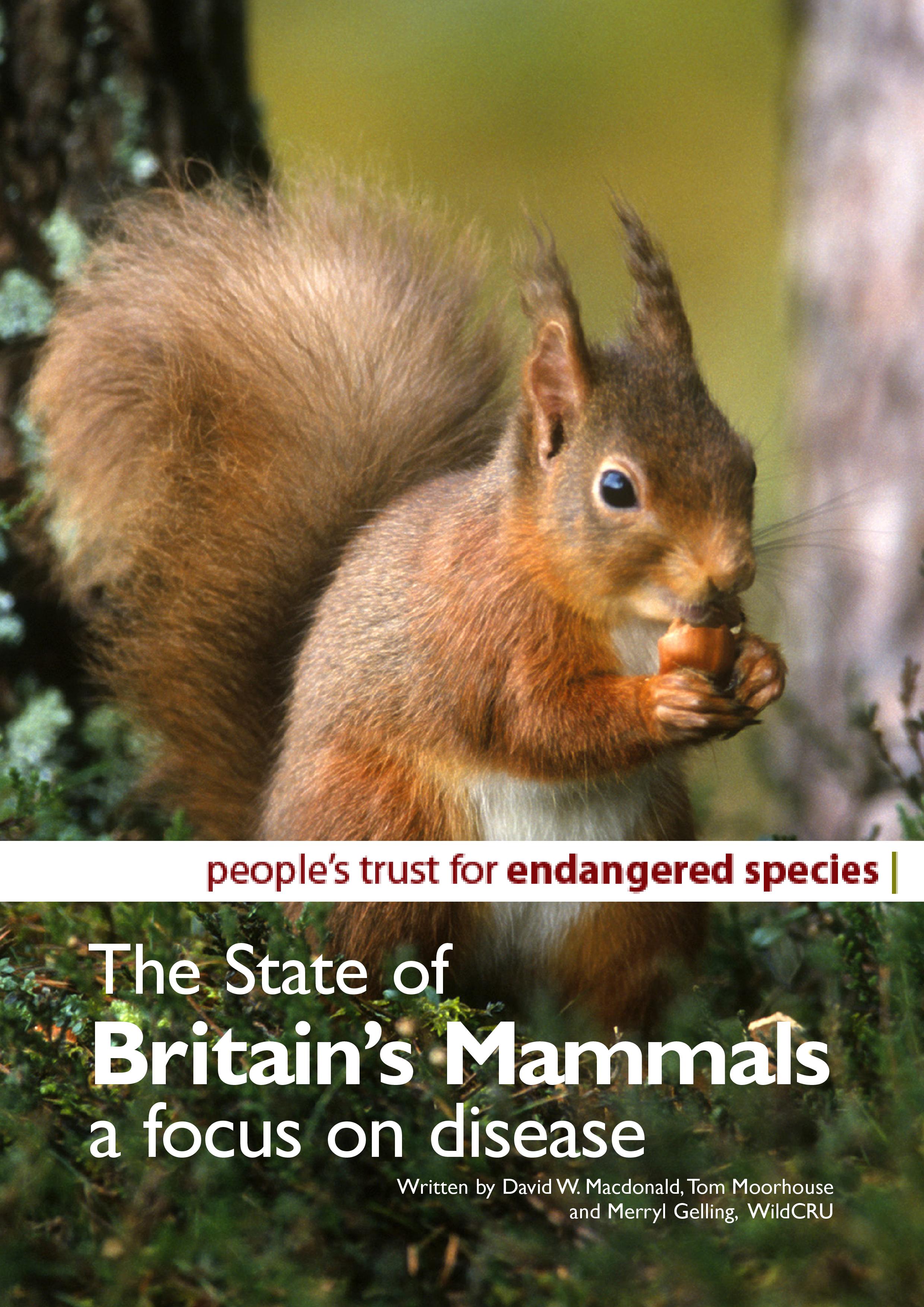News
The State of Britain’s Mammals – A focus on disease
In collaboration with WildCRU, People’s Trust for Endangered Species (PTES) published the latest in its series of research and conservation reports, The State of Britain’s Mammals on the 2nd June 2014. Authored by David Macdonald, Tom Moorhouse and Merryl Gelling, the theme of this year’s report focusses on diseases that affect British mammals, ranging from waterborne diseases in our rivers and streams, to squirrelpox virus, and mange in urban foxes, that can be transmitted to domestic dogs, as well bovine TB and other diseases that impacts livestock.
Wildlife disease has significant potential to impact human health and livelihoods and despite our island status, the continuous movement – both legal and illegal – of people, livestock, pets, wildlife, meat and animal products between countries, means that almost nowhere on the planet is exempt from global disease trends. Determinants of disease in UK mammals include urbanisation, climate change, environmental contamination and emerging infectious diseases influenced by factors such as human population density, land use change and large scale transportation of animals within the food supply chain.
Eight major themes are singled out in the report exploring:
• The fundamental principles of disease ecology
• When disease becomes a conservation priority
• The relationship between diseases of wild and domestic mammal species
• Managing the impact of bovine TB on cattle
• The implications of the spread of disease caused by human-mediated movement of mammal species
• Diseases that are transmissible to humans from wildlife and livestock
• Monitoring and regulation of wildlife diseases
• Predicting future trends in inter-related human and wildlife disease
Each theme is illustrated by reference to examples and case histories of native British mammals, supported by a series of 11 stand-alone vignettes, providing details of particularly intricate host-disease relationships.
Page-turning pdf available here: http://issuu.com/ptes/docs/sobm_2014






